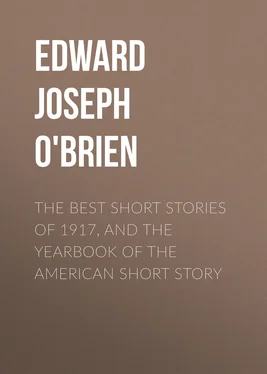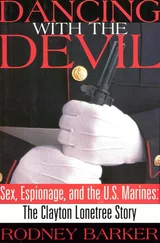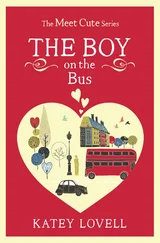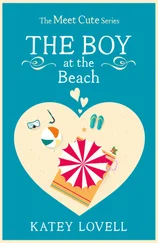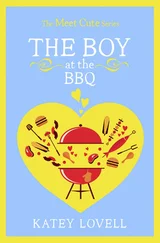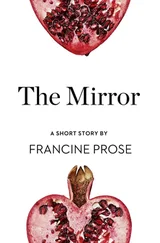Edward O'Brien - The Best Short Stories of 1917, and the Yearbook of the American Short Story
Здесь есть возможность читать онлайн «Edward O'Brien - The Best Short Stories of 1917, and the Yearbook of the American Short Story» — ознакомительный отрывок электронной книги совершенно бесплатно, а после прочтения отрывка купить полную версию. В некоторых случаях можно слушать аудио, скачать через торрент в формате fb2 и присутствует краткое содержание. Издательство: Иностранный паблик, Жанр: foreign_prose, literature_20, foreign_antique, на английском языке. Описание произведения, (предисловие) а так же отзывы посетителей доступны на портале библиотеки ЛибКат.
- Название:The Best Short Stories of 1917, and the Yearbook of the American Short Story
- Автор:
- Издательство:Иностранный паблик
- Жанр:
- Год:неизвестен
- ISBN:нет данных
- Рейтинг книги:3 / 5. Голосов: 1
-
Избранное:Добавить в избранное
- Отзывы:
-
Ваша оценка:
- 60
- 1
- 2
- 3
- 4
- 5
The Best Short Stories of 1917, and the Yearbook of the American Short Story: краткое содержание, описание и аннотация
Предлагаем к чтению аннотацию, описание, краткое содержание или предисловие (зависит от того, что написал сам автор книги «The Best Short Stories of 1917, and the Yearbook of the American Short Story»). Если вы не нашли необходимую информацию о книге — напишите в комментариях, мы постараемся отыскать её.
The Best Short Stories of 1917, and the Yearbook of the American Short Story — читать онлайн ознакомительный отрывок
Ниже представлен текст книги, разбитый по страницам. Система сохранения места последней прочитанной страницы, позволяет с удобством читать онлайн бесплатно книгу «The Best Short Stories of 1917, and the Yearbook of the American Short Story», без необходимости каждый раз заново искать на чём Вы остановились. Поставьте закладку, и сможете в любой момент перейти на страницу, на которой закончили чтение.
Интервал:
Закладка:
"They're talkin' about closing up the rum-holes." He indicated the group dominated by the lady in the purple raincoat. "They don't know what they're talking about. Some rum-holes is real refined and tasty, some of them have got gramophones you can hear for nothin'."
"Is that so?" responded the refined Miss Mealer. She smoothed her gloves. She opened her "mesh" bag and took out an intensely perfumed handkerchief. The mild-mannered youth put his harmonica in his pocket and warmed to the topic.
"Many's the time I've set into a saloon listening to that Lady that sings high up—higher than any piano can go. I've set and listened till I didn't know where I was settin'—of course I had to buy a drink, you understand, or I couldn't 'a' set."
"And they call that vice ," remarked Miss Mealer with languid criticism.
The mild-mannered youth looked at her gratefully. The light of reason and philosophy seemed to him to shine in her eyes.
"You've got a piano to your house," he said boldly, "can you—ahem—play classic pieces, can you play—ahem—'Asleep on the Deep'?"
In another group where substantial sandwiches were being eaten, the main theme was religion and psychic phenomena with a strong leaning toward death-bed experiences.
"And then, my sister's mother-in-law, she set up, and she says, 'Where am I?' she says, like she was in a store or somethin', and she told how she seen all white before her eyes and all like gentlemen in high silk hats walkin' around."
There were sighs of comprehension, gasps of dolorous interest.
"The same with my Christopher!"
"Just like my aunt's step-sister afore she went!"
Mrs. Tuttle did not favor the grave character of these symposia.
With the assured manner peculiar to her, she swept into such circles bearing a round box of candy, upon which was tied a large bow of satin ribbon of a convivial shade of heliotrope. Opening this box she handed it about, commanding, "Help yourself."
At first it was considered refined to refuse. One or two excursionists, awed by the superfluity of heliotrope ribbon, said feebly, "Don't rob yourself."
But Mrs. Tuttle met this restraint with practised raillery. "What you all afraid of? It ain't poisoned! I got more where this come from." She turned to the younger people. "Come one, come all! It's French-mixed."
Meanwhile Mrs. Bean and Mrs. Tinneray, still aloof and enigmatic, paced the deck. Mrs. Tuttle, blue feathers streaming, teetered on her high heels in their direction. Again she proffered the box. One of the cynical youths with the ivory-headed canes was following her, demanding that the parrot be fed a caramel. Once more the sky-blue figure bent over the ornate cage; then little Mrs. Bean looked at Mrs. Tinneray with a gesture of utter repudiation.
"Ain't she terrible ?"
As the steamboat approached the wharf and the dwarf pines and yellow sand-banks of Chadwick's Landing, a whispered consultation between these two ladies resulted in one desperate attempt to probe the heart of Mabel Hutch that was. Drawing camp-stools up near the vicinity of the parrot's cage, they began with what might to a suspicious nature have seemed rather pointed speculation, to wonder who might or might not be at the wharf when the Fall of Rome got in.
Once more the bottle of cologne was produced and handkerchiefs genteelly dampened. Mrs. Bean, taking off her green glasses, polished them and held them up to the light, explaining, "This here sea air makes 'em all of a muck."
Suddenly she leaned over to Mrs. Tuttle with an air of sympathetic interest.
"I suppose—er—your sister Hetty'll be comin' on board when we get to Chadwick's Landing—her and her husband?"
Mrs. Tuttle fidgeted. She covered Romeo's cage with a curious arrangement like an altar-cloth on which gay embroidered parrakeets of all colors were supposed to give Romeo, when lonely, a feeling of congenial companionship.
Mrs. Bean, thus evaded, screwed up her eyes tight, then opened them wide at Mrs. Tinneray, who sat rigid, her gaze riveted upon far-off horizons, humming between long sighs a favorite hymn. Finally, however, the last-named lady leaned past Mrs. Bean and touched Mrs. Turtle's silken knee, volunteering,
"Your sister Hetty likes the water, I know. You remember them days, Mis' Tuttle, when we all went bathin' together down to old Chadwick's Harbor, afore they built the new wharf?"
Mrs. Tinneray continued reminiscently.
"You remember them old dresses we wore—no classy bathin'-suits then—but my—the mornings used to smell good! That path to the shore was all wild roses and we used to find blueberries in them woods. Us girls was always teasin' Hetty, her bathin'-dress was white muslin and when it was wet it stuck to her all over, she showed through—my, how we'd laugh, but yet for all," concluded Mrs. Tinneray sentimentally, "she looked lovely—just like a little wet angel."
Mrs. Tuttle carefully smoothed her blue mitts, observing nervously, "Funny how Mis' Tinneray could remember so far back."
"Is Hetty your sister by rights," suavely inquired Mrs. Bean, "or ony by your Pa's second marriage, as it were?"
The owner of the overestimated parrot roused herself.
"By rights," she admitted indifferently, "I don't see much of her—she married beneath her."
The tip of Mrs. Tinneray's nose, either from cologne inhalings or sunburn, grew suddenly scarlet. However she still regarded the far-off horizons and repeated the last stanza of her hymn, which stanza, sung with much quavering and sighing was a statement to the effect that Mrs. Tinneray would "cling to the old rugged cross." Suddenly, however, she remarked to the surrounding Summer air,
"Hen Cronney is my second cousin on the mother's side. Some thought he was pretty smart until troubles come and his wife was done out of her rights. "
The shaft, carefully aimed, went straight into Mrs. Turtle's blue bosom and stuck there. Her eyes, not overintelligent, turned once in her complacent face, then with an air of grandiose detachment, she occupied herself with the ends of her sky-blue automobile veil.
"I'll have to fix this different," she remarked unconcernedly, "or else my waves'll come out. Well, I presume we'll soon be there. I better go down-stairs and primp up some." The high heels clattered away. Mrs. Bean fixed a long look of horror on Mrs. Tinneray, who silently turned her eyes up to heaven!
As the Fall of Rome churned its way up to the sunny wharf of Chadwick's Landing, the groups already on the excursion bristled with excitement. Children were prepared to meet indulgent grandparents, lovers their sweethearts, and married couples old school friends they had not seen for years. From time to time these admonished their offspring.
"Hypatia Smith, you're draggin' your pink sash, leave Mommer fix it. There now, don't you dare to set down so Grammer can see you lookin' good."
"Lionel Jones, you throw that old pop-corn overboard. Do you want to eat it after you've had it on the floor?"
"Does your stomach hurt you, dear? Well, here don't cry Mommer'll give you another cruller."
With much shouting of jocular advice from the male passengers the Fall of Rome was warped into Chadwick's Landing and the waiting groups came aboard. As they streamed on, bearing bundles and boxes and all the impedimenta of excursions, those already on board congregated on the after-deck to distinguish familiar faces. A few persons had come down to the landing merely to look upon the embarkation.
These, not going themselves on the excursion, maintained an air of benevolent superiority that could not conceal vivid curiosity. Among them, eagerly scanning the faces on deck was a very small thin woman clad in a gingham dress, on her head a battered straw hat of accentuated by-gone mode, and an empty provision-basket swinging on her arm. Mrs. Tinneray peering down on her through smoked glasses, suddenly started violently. "My sakes," she ejaculated, "my sakes," then as the dramatic significance of the thing gripped her, "My—my—my, ain't that terrible ?"
Читать дальшеИнтервал:
Закладка:
Похожие книги на «The Best Short Stories of 1917, and the Yearbook of the American Short Story»
Представляем Вашему вниманию похожие книги на «The Best Short Stories of 1917, and the Yearbook of the American Short Story» списком для выбора. Мы отобрали схожую по названию и смыслу литературу в надежде предоставить читателям больше вариантов отыскать новые, интересные, ещё непрочитанные произведения.
Обсуждение, отзывы о книге «The Best Short Stories of 1917, and the Yearbook of the American Short Story» и просто собственные мнения читателей. Оставьте ваши комментарии, напишите, что Вы думаете о произведении, его смысле или главных героях. Укажите что конкретно понравилось, а что нет, и почему Вы так считаете.
